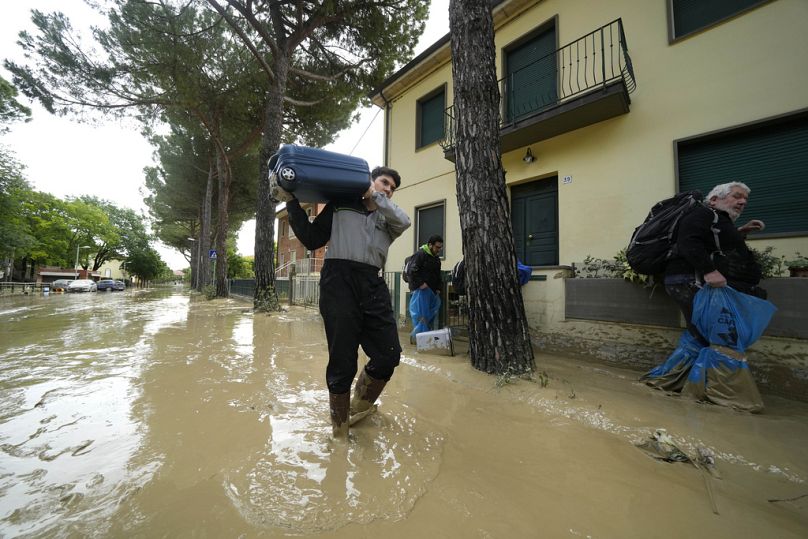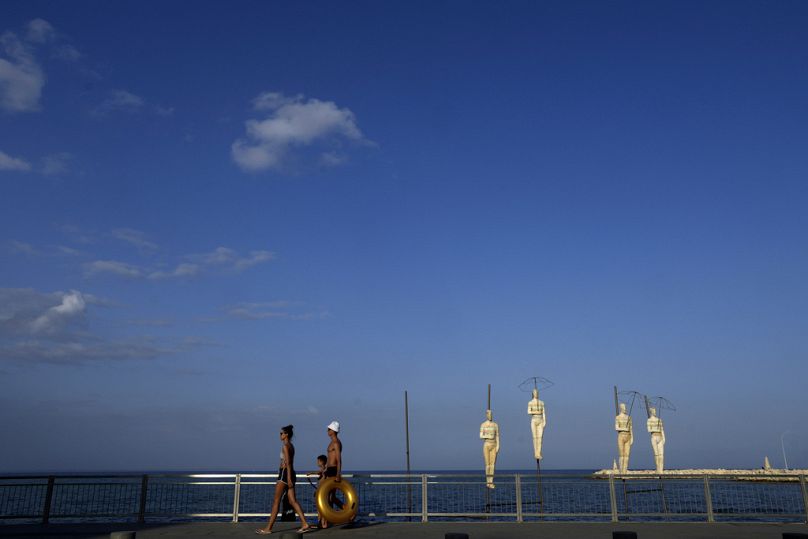As Europe heats up, increasingly extreme weather could have an impact on where you choose to travel.
It is undeniable that the weather plays an important role in how much you enjoy your holiday.
 ADVERTISEMENT
ADVERTISEMENT
 ADVERTISEMENT
ADVERTISEMENT
While most people are searching for the sun, however, there is a limit to how hot you want it to be. Especially if that heat comes with intense rainfall, flooding or wildfires.
And, with extreme weather and unpredictable conditions becoming more common in Europe due to climate change, travellers could be set to face disruption this summer.
Extreme weather has already affected Europe this year
In January, eight countries - Belarus, the Czech Republic, Denmark, Latvia, Liechtenstein, Lithuania, the Netherlands, and Poland - set new all-time seasonal heat records on the first day of the month. France also broke more than 100 heat records that day.
The unseasonably warm weather meant many famous European skiing destinations saw little to no snow, including parts of the Alps. Some were forced to rely entirely on artificial snow.
In April, Portugal and Spain baked in extreme heat with temperatures reaching between 36.9°C and 38.8°C in southern parts of each country. May saw this heat turn to downpours and flash flooding in Spain as some regions popular with tourists experienced their first rainfall in months.
Streets in Murcia became rivers, with buildings flooded and countless roads closed. Some parts of Valencia saw more rainfall in a few days than they had in the last six months, according to the national weather agency AEMET.
After a dry and disastrous ski season, Italy too was hit by deadly flooding in May. Six months' worth of rain fell in 36 hours in the Emilia-Romagna region leaving at least 13 people dead, thousands evacuated from their homes and chaos on transport networks.
Where in Europe will be hit by extreme weather this summer?
The world could set new heat records this year due to the El Niño weather phenomenon.
Caused by waters in the Pacific Ocean becoming much warmer than usual, this event means we’re likely to face more intense heatwaves, prolonged hot seasons and more powerful storms.
This year is already predicted to be hotter than 2022 and the fifth or sixth hottest year on record.
Temperatures across Spain, France and Italy are more than 60 per cent likely to be well above average between June and August this year, according to the Copernicus Climate Change Service. It predicts that southern and western Europe will see the worst of the heat.
But the seasonal forecast is also predicting above-average rainfall across southern Europe throughout the whole summer. These downpours, however, are unlikely to have much of an impact on the prolonged drought conditions in these regions.
All in all, it could mean more unpredictable and intense weather in the Mediterranean during the busy holiday season.
Exceptionally high temperatures also increase the risk of forest fires with French authorities warning that the season is starting much earlier than usual. And with rainfall unlikely to alleviate drought conditions, travellers could see restrictions on water use if they choose to visit some parts of southern Europe this year.
Can extreme heat prevent your plane from taking off?
On top of extreme heat and weather in popular European tourist destinations, it is possible for it to be too hot to fly in the first place.
Heat makes the air expand and so become less dense, affecting an aircraft’s ability to get off the runway. Planes need a certain density of air to capture enough force to lift off.
At around 52°C, larger aircraft like the Boeing 747 and Airbus A380 start to have problems with lift. For smaller aircraft like the Boeing 737, this is lower at around 47.5°C.
Extreme heat also brings the risk of engines catching fire and can cause problems with the materials that runways are made of in places where weather like this isn’t common.
Though temperatures this high are still pretty rare, they could become increasingly more likely due to global warming. During the heatwave of August 2021, Syracuse in Sicily hit a record 48.8°C while Spain reached 47.6 °C - some of the hottest conditions ever recorded in Europe.
In the US, the Federal Aviation Authority, the country’s largest government transport agency, has already warned that air travellers could be stuck with delays and cancellations as climate change brings more hot weather.
An increased number of extremely hot days could mean that flights are grounded, certain runways can’t be used and baggage allowances could be lower in the future.
Could some popular destinations become too hot for tourists?
Though sun and heat often attract tourists to certain destinations, travellers are becoming more conscious of when it's too hot to be enjoyable.
A survey carried out last year by UK travel insurance provider InsureandGo found that 71 per cent of people thought parts of Europe would be too hot to visit during summer by 2027. The destinations they were most concerned about were Spain, Greece, Turkey and Cyprus.
By 2100, popular holiday destinations across Europe could face the risk of more unprecedented record-breaking heatwaves according to a recent study from the UK’s University of Bristol. Another report warned in April that Paris could face sweltering summer temperatures of more than 50°C by 2050.
The European Travel Commission (ETC) has already found that favourable weather conditions have as much of an impact on people’s long-haul travel choices as visiting internationally renowned landmarks.
A recent survey found that 30 per cent of people considered it as the most important criterion when choosing a destination. ETC says it shows an increased awareness among travellers of the constraints imposed by extreme weather conditions.














